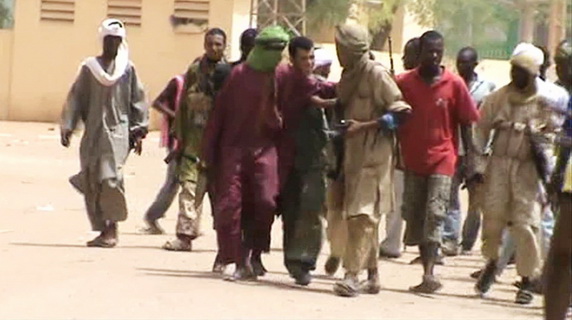
Foreigners always claim that support for Islamists in Egypt stems solely from their desire to support those who were democratically elected by the people. It naturally then, falls upon the west to help the Islamists in adopting the values and principles of democracy.
These include, of course, respect for human rights and, as was clarified yesterday, support for western interests, among them guaranteeing Israel’s security. The west has always believed, as has been stated in previous articles that, “if they want to eat shit, then bring them a spoon.” Assuming that in this case Islamists are considered the “shit,” then we must stop and ask this one question; “Do the Egyptian people really want to eat shit?”
The western perception of the Egyptian people, rooted in its colonial past, has always been that we are backwards, barbaric and need to be controlled. Extremists among them would say that it is necessary for western countries themselves to rule over and administer the lands of the third world, whereas more moderate elements will say that they should be controlled by an indigenous, political elite.
This elite obviously would be beholden to the west, who would train and fund them, and assess their loyalty by the extent to which this elite was willing to scorn and ridicule the masses of their own people.
That being said, since the end of the colonial period and the expulsion of foreign armies from third world countries, many of these countries came to be occupied by reactionary armies of their own, as has been stated by Frantz Fanon. The credit for this can be given primarily to this local, indigenous elite, that was created and fashioned by the west in isolation from its own people.
It should be noted that this did not apply to every case, and that in some instances, the west allowed for a more culturally traditional elite to administer the affairs of certain countries. Whereas western cultivated and influenced elites saw development in terms of mimicking the west and applying its notions of modernity onto their own countries, the second more traditional elite would develop its own standards for what it considered growth and progress.
After decades of failure on the part of this first set of elites to protect western interests, the divide between the west itself and these countries began to grow, causing this set of elites to lose their appeal within European and American circles.
It then became clear to the west that the second, more traditional elite, may in fact be better equipped to push forth their agenda and persevere, seeing as they did not hold themselves to or try to apply certain standards of western modernity that were unpopular amongst the masses. This may explain why the west has been keen on supporting the rise of Islamism in the Arab world.
This traditional elite does not judge the success of Egypt’s development on the extent to which they are able to industrialise the country, develop its agricultural sector, modernise its infrastructure or raise the general standard of living for its citizens
Instead, it views development and its success based on the extent to which women adhere to Islamic dress codes. A woman who wore a hijab in 1970 for example, and upgrades to a veil by 1990, and then a niqab by 2010, is viewed as an example of progress. Success could also be measured by the frequency with which thieves have their hands cut off, or by how often adulterers and consumers of alcohol are stoned. By these standards, improvements in growth and economic development are viewed as mere material pleasures to be enjoyed in this world.
Of course, this elite will be sure to guarantee that they themselves reap the benefits of growth and development, but will not consider helping the masses to do the same for themselves as something that they are obligated to do by their own standards of justice.
This option appears attractive to the west, and to them supporting Islamists in the Arab world may seem to have succeeded. However we do not agree. Why? Because the actions of the west are rooted in a deep seated superiority complex, based on its colonial past, whose purposes are always to pursue urgent, short-term goals, and sees us – the citizens of the third world – not only as backwards barbarians, but as people who are happy and complicit in our barbarity, a fact reinforced by the election of Islamists in Egypt’s parliamentary and presidential elections.
The position of the west, or rather that of its social and democratic powers, has caused us much grief and forces us to ask a series of questions: Do the people of the west not realise that Islamists movements have always enjoyed the support of colonial powers and that this is in fact the primary reason for their success? Do the social and democratic forces in the west not realise that true democratic movements in Egypt have been prevented from operating freely for more than 60 years?
Is it not clear to the western masses that time and time again the Muslim Brotherhood has allied with the powers that be, only to gain more than they have lost with the recent collapse of those very powers?! Does the western elite not see that so far 43 per cent of Egyptians have voted “No” on the Muslim Brotherhood’s Constitution (which many western countries have accepted and praised) despite the mass instances of rigging that have been witnessed and reported by organisations such as Human Rights Watch?
After several months of political activity, the Egyptian people believe for the first time, in the power of democracy and social justice and have stated clearly that they reject the Muslim Brotherhood and its allies. Furthermore, the Egyptian electorate has made clear and stated, day after day, that not only has the west propped up and supported the Muslim Brotherhood, but is directly responsible in aiding them in their rise to power.



